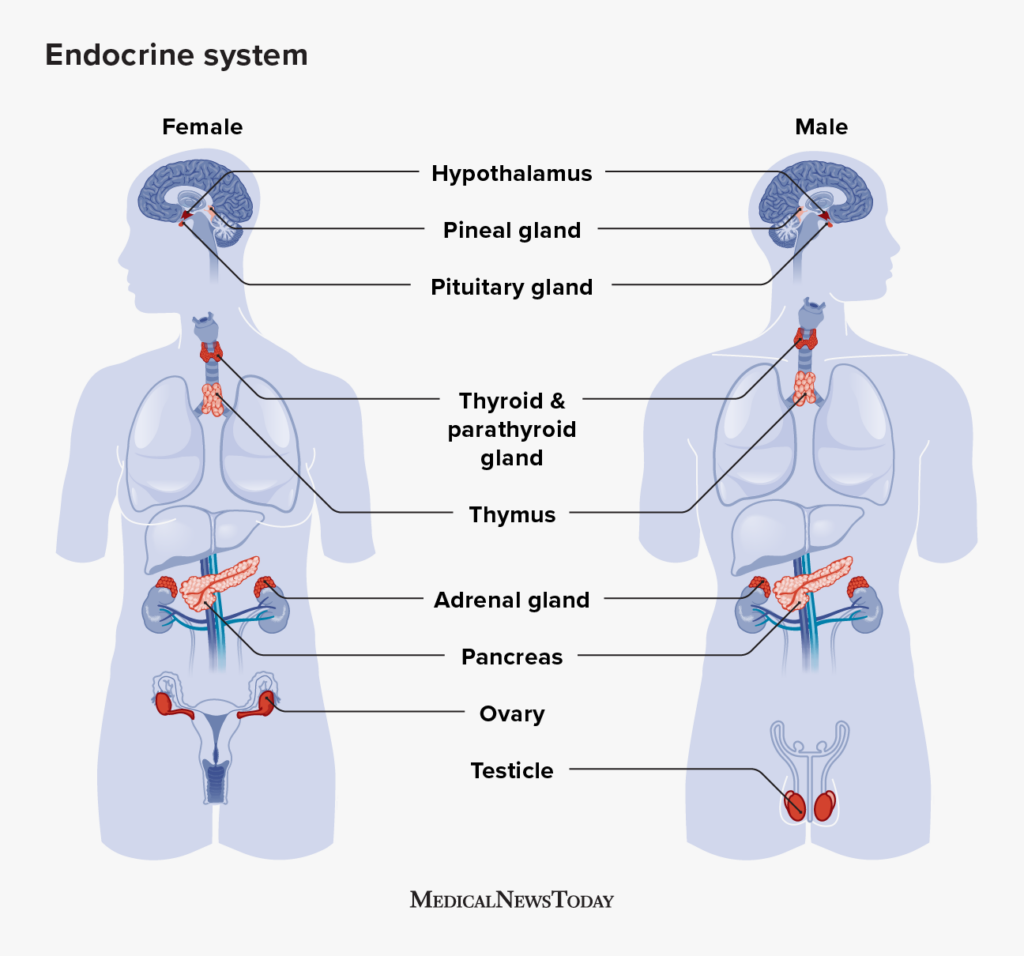Texas Endocrinology: State-of-the-Art Hormonal Health Care
Wiki Article
Browsing the Intricacies of Thyroid Disorders With an Endocrinologist
Thyroid conditions can be difficult and intricate to take care of. From diagnosis to treatment and lasting treatment, navigating the details of these problems needs the expertise of an endocrinologist. In this article, we will certainly explore the relevance of looking for specialist assistance from an endocrinologist when managing thyroid disorders. We will certainly delve right into the understanding of different thyroid problems, the value of exact diagnosis, and the available treatment alternatives. Furthermore, we will talk about the ongoing monitoring and support required for individuals with thyroid disorders. By recognizing the function of an endocrinologist in dealing with thyroid complexities, people can equip themselves to make informed choices and obtain the detailed care they are entitled to.Recognizing Thyroid Problems
Thyroid problems can be much better understood with guidance from an endocrinologist. Hypothyroidism, for example, happens when the thyroid does not create sufficient hormonal agents, resulting in signs and symptoms such as tiredness, weight gain, and clinical depression.Recognizing thyroid conditions requires a thorough assessment of an individual's clinical history, physical exam, and lab examinations. Endocrinologists specialize in the diagnosis and therapy of hormonal disorders, consisting of thyroid disorders.
Moreover, endocrinologists recognize with the current developments in thyroid research study, which allows them to offer the most effective and up-to-date therapy techniques. Endocrinologist in leander. They can recommend medication to control hormone degrees, recommend way of living adjustments, and deal assistance on managing signs. In more complicated cases, they might work together with various other experts to ensure detailed care

Importance of an Endocrinologist
An endocrinologist plays an essential function in the diagnosis and monitoring of thyroid conditions, providing specialized experience and understanding in hormonal problems. With their substantial training in the endocrine system, these physician are distinctively qualified to treat and assess thyroid problems.One of the key reasons that an endocrinologist is necessary in the management of thyroid disorders is their capability to accurately identify the problem. Thyroid disorders can be complex, with signs and symptoms that may overlap with various other medical problems. An endocrinologist has the experience to perform a complete assessment, consisting of a thorough case history, checkup, and specialized tests to precisely diagnose the details thyroid condition.
Moreover, an endocrinologist is equipped to establish a tailored treatment prepare for each specific patient. They think about variables such as the type and intensity of the thyroid problem, the client's general wellness, and their preferences. This customized technique makes certain that the treatment plan is enhanced for the individual's details needs, resulting in much better results.
Along with medical diagnosis and therapy, an endocrinologist additionally plays an essential function in long-lasting monitoring of thyroid problems. They monitor the patient's thyroid hormone levels, adjust medication dosages if required, and offer continuous support and education and learning to assist individuals successfully handle their problem.
Identifying Thyroid Conditions
The endocrinologist's experience includes properly detecting thyroid problems via a thorough examination, consisting of a comprehensive case history, health examination, and specialized tests (Texas endocrinology). This approach enables the endocrinologist to collect critical info concerning the individual's symptoms, clinical history, and household history, which can offer valuable understandings into the potential root causes of the thyroid problemThroughout the physical exam, the endocrinologist will thoroughly take a look at the person's neck for any signs of swelling or problem in the thyroid gland. They may likewise check for other physical indicators, such as adjustments in hair appearance, skin dry skin, or protruding eyes, which can be indicative of thyroid problems.
Along with the case history and physical exam, the endocrinologist may order specialized tests to more review the function of the thyroid gland. These examinations might consist of blood tests to determine the degrees of thyroid hormones, thyroid-stimulating hormonal read here agent (TSH), and antibodies that might be associated with autoimmune thyroid conditions. Imaging tests, such as ultrasound or nuclear medication scans, may also be carried out to assess the size, shape, and structure of the thyroid gland.
Treatment Alternatives and Monitoring
The selection of treatment depends on the certain kind Full Article and intensity of the thyroid disorder, as well as individual client aspects. In cases of hypothyroidism, where the thyroid gland does not generate adequate thyroid hormonal agents, the most common therapy is hormone replacement therapy.For hyperthyroidism, where the thyroid gland creates too much quantities of thyroid hormonal agents, therapy alternatives include medicines, contaminated iodine treatment, or surgical procedure. Drugs, such as beta blockers, can be suggested to handle signs and symptoms and lower the manufacturing of thyroid hormones.
Along with these standard treatments, there are additionally different treatments that some individuals may take into consideration, such as herbal supplements, acupuncture, or nutritional changes. It is crucial to keep in mind that these alternative therapies should be talked about with an endocrinologist to guarantee they are reliable and risk-free.
Long-Term Care and Support
Lasting care and support for individuals with thyroid conditions includes recurring monitoring and tailored therapy intends supplied by an endocrinologist. After a preliminary medical diagnosis and treatment, it is essential for patients to continue receiving regular follow-up care to ensure that their thyroid feature continues to be secure and that any kind of potential problems are determined and dealt with without delay.
Regular tracking of thyroid hormonal agent levels via blood examinations permits the endocrinologist to assess the efficiency of the therapy plan and make any kind of required modifications. This close tracking likewise allows the early detection of any type of modifications in thyroid feature and the identification of possible regressions or issues, such as the development of nodules or the development of thyroid cancer cells. Depending upon the specific requirements of the person, tracking might occur every few months or on an annual basis.

Verdict
With their knowledge and experience, endocrinologists can give lasting treatment and support to individuals with my review here thyroid disorders. By looking for the assistance of an endocrinologist, clients can receive the required care and administration to successfully browse their thyroid problem. Endocrinologist in georgetown.
Report this wiki page